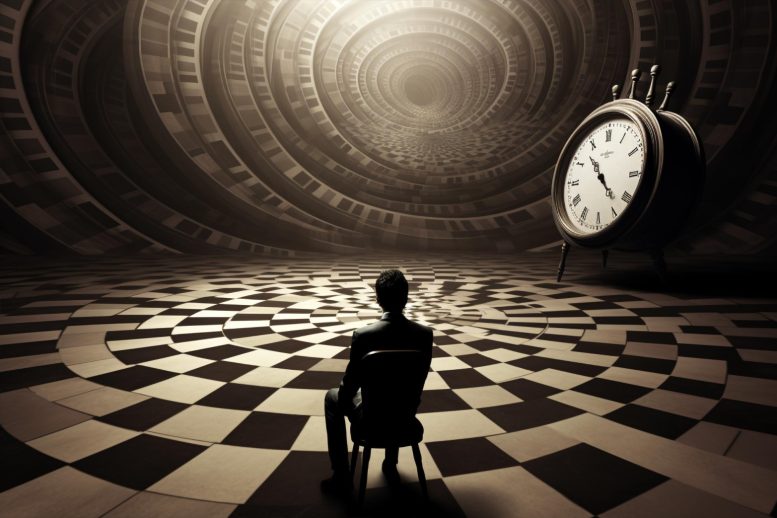
A mysterious figure waves a pocket watch to and fro, repeating the phrase, “You’re getting sleepy, very sleepy,” seemingly seizing complete control over their subject. While this portrayal is a staple in popular media, it isn’t an accurate representation of real hypnotism. Regrettably, even some professionals and educators in the field perpetuate these misconceptions about hypnosis.
Steven Jay Lynn, a professor of psychology at Binghamton University, State University of New York, is an expert on hypnosis who has made major contributions to the judicial system for his insight on the practice. Lynn believes that hypnosis has many useful clinical applications, but that myths keep it from being utilized to its full potential.
In a recent paper published in BJPsych Advances, he and his colleagues, Madeline Stein and Devin Terhune from the Institute of Psychiatry, Psychology & Neuroscience at King’s College, addressed a number of errors and misconceptions regarding the characteristics and practice of hypnosis. These are a few of the common myths that are widely believed and commonly circulated in popular culture.
Hypnotized people can’t resist suggestions
A deeply hypnotized person is believed to display “blind obedience,” going along automatically with whatever the hypnotist suggests. Yet individuals do not lose control over their actions during hypnosis – contrary to the notion the media reinforces that hypnosis is something done to you and that hypnosis can be used to control someone.
In fact, people can resist and even oppose hypnotic suggestions. Their experience of control during hypnosis depends on their intentions and expectations regarding whether or not they retain voluntary control.
Hypnosis is a “special state”
Hypnosis is often mischaracterized as a “special state” where defense mechanisms are reduced and a “unique state of physical relaxation and conscious unconsciousness’ allows us to ‘enter our subconscious depths through hypnosis. However, people can respond to hypnotic suggestions even while they are alert and on an exercise bicycle. Aside from being a contradiction in terms, ‘conscious unconsciousness’ is an inaccurate depiction, because during hypnosis even the most highly suggestible individuals remain fully conscious and cognizant of their surroundings.
It is more accurate to consider hypnosis as a set of procedures in which verbal suggestions are used to modulate awareness, perception, and cognition, rather than to unnecessarily invoke ‘special states.’
People are either hypnotizable or they are not
People’s responsiveness to hypnosis can be relatively stable over time. Yet it is inaccurate to assume that people are either hypnotizable or not. People vary greatly in their responsiveness and often respond to some suggestions but not others. Still, most people are sufficiently hypnotizable to reap substantial benefits from therapeutic suggestions.
Responsiveness to suggestions reflects nothing more than compliance or faking
Suggested behaviors during hypnosis can seem so much a departure from the mundane that questions inevitably arise regarding whether hypnotic responses are genuine. However, neuroimaging studies reveal that the effects of hypnotic suggestions activate brain regions (e.g, visual processing) consistent with suggested events (e.g., hallucinating an object).
These findings provide convincing evidence that hypnotic effects are represented at the neurophysiological level consistent with what people report.
Hypnotic methods require great skill to administer
One popular misconception is that of the mesmerist or magician-like hypnotist with special powers of influence who can “hypnotize” anyone.
This widespread idea is pure myth; in actuality, administering a hypnotic induction and specific suggestions do not require any special skills or abilities beyond those required for basic social interactions and administration of experimental or clinical procedures, such as the ability to establish rapport. However, hypnosis should be practiced only by professionals trained in the use of hypnosis.
Hypnotic age regression can retrieve accurate memories from the distant past
TV shows and movies often feature people being able to recall extremely accurate memories from a distant past life under hypnosis. However, research suggests a contrary view. When researchers check the accuracy of memories of people who are “age regressed” to an earlier time (e.g., 10th century) against factual information from the suggested period, they find that the information is almost invariably incorrect.
What people report is mostly consistent with information experimenters provide regarding their supposed past life experiences and identities (e.g., different race, culture, sex). These findings imply that “recall” reflects participants’ expectancies, fantasies, and beliefs regarding personal characteristics and events during a given historical period.
Reference: “Reconciling myths and misconceptions about hypnosis with scientific evidence” by Madeline V. Stein, Steven Jay Lynn and Devin B. Terhune, 14 June 2023, BJPsych Advances.
DOI: 10.1192/bja.2023.30